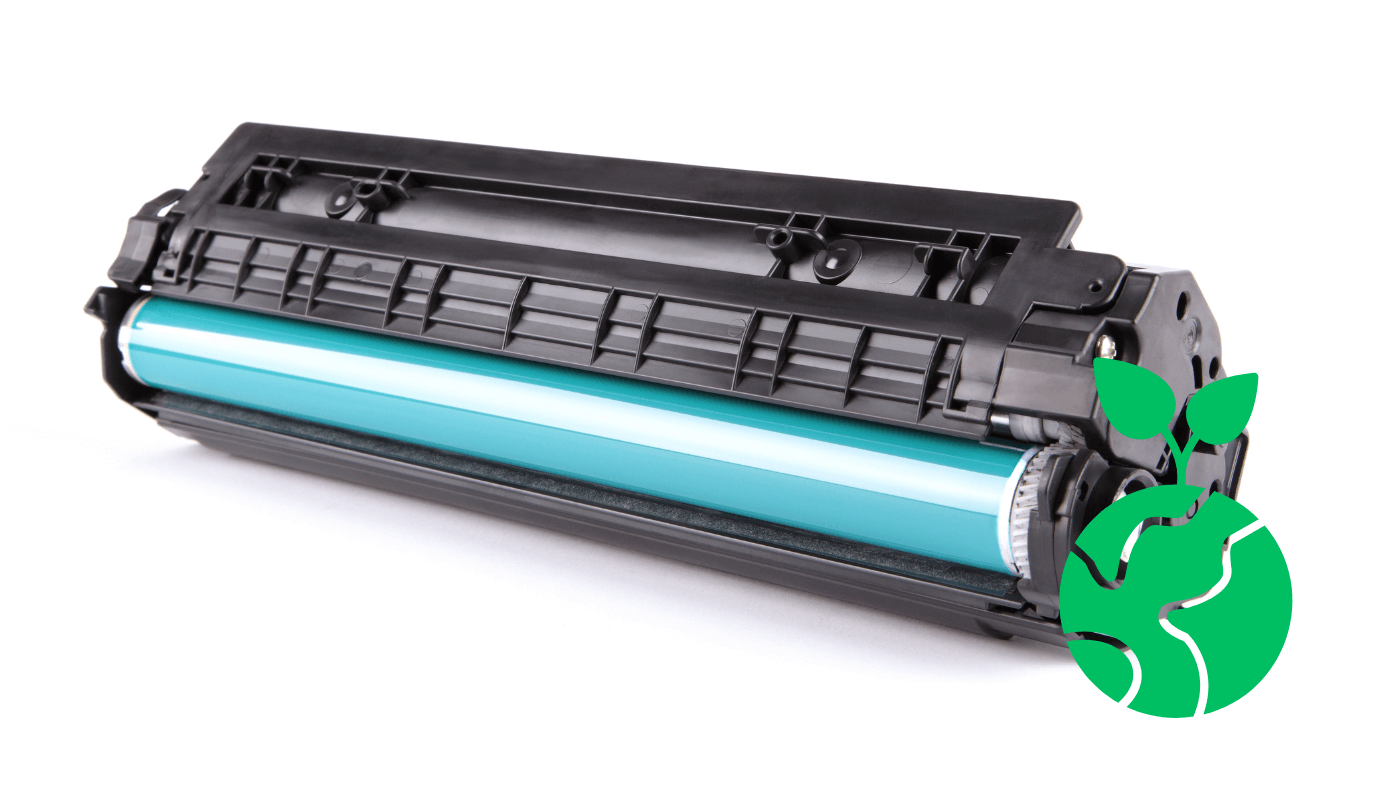In a world that is increasingly concerned about sustainability and environmental protection, the transformation of traditional industrial practices is essential. The printing industry is no exception. With the introduction of organic toner cartridges, manufacturers and consumers are positioning themselves at the forefront of a green revolution in printing. This article highlights how these innovative products are not only environmentally friendly, but also efficient and cost-effective.
The need for a sustainable alternative
The urgency for greener solutions in the printing sector is becoming increasingly evident against the backdrop of a worsening global environmental crisis. Conventional toner cartridges that rely on the use of petrochemical components contribute significantly to environmental problems. These begin with the extraction of the necessary raw materials and continue through the entire life cycle of the cartridges until their final disposal. The resulting ecological footprint increasingly contradicts the demands of consumers and companies for more responsible and sustainable operations.
The extraction of petrochemical ingredients not only requires the use of fossil fuels, but also leads to habitat destruction and water and air pollution. The production of these cartridges also consumes valuable resources and energy, while the disposal of the used cartridges brings with it problems such as the release of harmful chemicals into the environment and increasing pollution of landfills.
Given these challenges, the search for sustainable alternatives is becoming increasingly urgent. Developing products that use environmentally friendly materials while meeting user needs is at the heart of efforts to minimize the environmental impact of the printing sector. The introduction of organic toner cartridges is a step in this direction, as they offer the potential to significantly reduce the printing industry's environmental footprint and promote the transition to more environmentally conscious business practices.
What are organic toner cartridges?
Bio-toner cartridges represent an innovative development in the field of environmentally friendly printing technologies, based on the latest advances in environmentally friendly materials science. They rely on the power of renewable resources, such as vegetable oils and natural resins, while avoiding conventional petroleum-based components. These materials obtained from nature are not only characterized by a more environmentally friendly production method, but also offer the advantage of better biodegradability, which noticeably reduces the burden on landfills.
Advantages of organic toner cartridges at a glance
-
Ecological benefits : The most outstanding advantage of organic toner cartridges is their lower environmental impact. By using renewable raw materials, they contribute to the protection of fossil resources and help reduce emissions that normally occur during production and disposal.
-
Print quality and reliability : Organic toner cartridges are in no way inferior to conventional cartridges when it comes to print quality. Thanks to technological innovations, they achieve excellent print resolution and reliability that meet the requirements of professional printing environments.
-
Economic aspects : In the long term, organic toner cartridges offer financial advantages. Their production can be more efficient due to the use of cheaper, renewable raw materials. They also promote a circular system through supported recycling initiatives that consumers can benefit from through return and reprocessing, which in turn reduces the total cost of ownership.
Overall, organic toner cartridges not only represent an environmentally conscious choice for consumers and businesses that value sustainability, but they also offer practical benefits in terms of performance and cost. This combination makes them an attractive alternative in the modern printing landscape, which is increasingly influenced by ecological and economic considerations.
Challenges and future prospects
The transition to organic toner cartridges faces challenges, particularly in terms of availability and initial cost. Still, the potential for widespread adoption is high, especially if consumers and businesses recognize the value of sustainable practices.
Conclusion
Organic toner cartridges represent an important step towards a greener future in printing. By adopting this technology, consumers and businesses alike can make a positive contribution to environmental protection without sacrificing quality or performance. The future of printing looks green, and organic toner cartridges are undoubtedly a central part of that vision.



